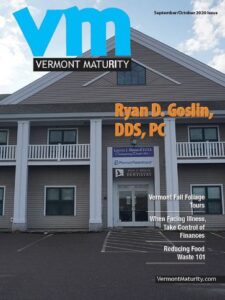
Most seniors are aware of reverse mortgages, but many do not really understand how they work, and some of those people misunderstand how they work. We are seeing more articles, more discussion, more interest, and more utilization. In the next 10 years, the growth in reverse mortgage activity will be very significant for the welfare of seniors and for the economy.
The timing of the availability of reverse mortgages is good, with the Baby Boomers looking to retire, the loss of savings that many have recently realized, and the ever present unknown of the impact of future inflation. Many are fine with their retirement package, but many more are wondering how it is all going to work out. Ideally, a reverse mortgage would be in every senior home owner’s plan B. For many, the equity in their home is one of their biggest assets, and it is important to understand how to convert that equity into cash.
Most senior homeowners will qualify for a reverse mortgage. Individuals need to be at least 62 years of age, own the home as a primary residence, and have a fair amount of equity in the home. The home owner’s income is not a consideration and their credit score is not a consideration. The factors that determine how much money is available are: 1) the amount of the current first mortgage, if any, 2) the appraised value of the home, and 3) the age(s) of the home owners.
The term reverse mortgage has a negative connotation to many people. Reverse mortgages have been around for more than 20 years and it has taken us a long time to grow accustomed. The truth is we are still battling the concept.
Most of us with a home have had a regular mortgage at some point, or at many points. A regular mortgage, sometimes referred to as a forward mortgage, has, at times, been a struggle for us. In fact, many of us still have a forward mortgage and cherish the day when it is paid in full. So entering into a reverse mortgage is yet another mortgage… ‘not a good thing’, we say to ourselves.
So let’s call it something different. Let’s call it a HECM (heck-um). FHA refers to this product as a Home Equity Conversion Mortgage. This name is another, more friendly, way of describing the product. You may have lots of equity in your home; this may be your biggest asset. The HECM product is a way of gaining access to this asset during your lifetime so that you can use the equity to enrich your life.
The next big discussion point is about leaving the house to the children. This seems to be a fairly common goal of seniors, and a very worthy goal. For those seniors who do not need to think about using the equity in their home, a HECM should not be in their future….end of discussion. But for seniors who have retired with a modest income, or who are struggling to figure out the finances of their imminent retirement, a HECM needs to be a serious consideration. Having a HECM does not mean that the asset is gone…..it does not mean that there will be no equity in the home for the children. It does mean that the senior home owners have access to some of the equity in their home if they need it.
Here is a scenario: A 67-year-old couple has intended to leave their home to their two children. They have no mortgage, a small pension, social security, and $100,000 in a 401k program. The 401k balance is a little less than it was and they have come to realize that it takes more to live on than they had anticipated. They are doing ok, but would like to have a little extra for an occasional trip. They are concerned about what they would do if the furnace gives out, and they wonder what they will do in three years when they will need to think about replacing their car. On the one hand, they hate to think about reneging on their intention to leave the house to their children, but on the other hand, they are only 67 and have lots of retirement years left. Their home is their biggest asset and they have worked hard for it all those years.
What would the children think? Would the children want them to be able to take a trip? Would the children want them to be able to upgrade their car in three years? Would the children want them to be struggling to figure this out when they have a significant asset available to them? The best bet may be to talk to the children. Tell them your concerns; tell them that you feel guilty using part of the equity in the home because it has always been your intention to leave the home to your children. Chances are pretty good that the children will encourage you to live your life. In fact, they’ll be relieved to know that you have another source of cash available when you need it. What the retirees have thought to be a problem is probably not a problem at all.
It may be a good idea to include your children in the discussions with the HECM specialist and with the counselor (the HECM procedures require that you talk to a specially trained counselor to go over the product prior to the actual application). It may be helpful to you and the children if your children understand the process. There are decisions to be made and a family discussion might be beneficial. Decisions would include when to start the process, and how to get access to the equity. Access to the equity can be a monthly check sent to the homeowners, an upfront lump sum, an available line of credit, or a combination of these. Family members will be glad to learn that their parents can live in the home as long as they are able, they will not need to make mortgage payments during that time, that the title to the home stays in their parents’ name, and that there will most likely be equity remaining in the home when the parents can no longer live in the home. The children will be enlightened to learn that, when it is time to repay the loan because the parents have left the home, the children can sell the home to recoup the remaining equity, refinance the mortgage if they want to keep the home, or simply walk away if they feel there is little or no equity.
A HECM specialist will be glad to print out data specific to your situation and explain, in detail, how it works and what your options would be. Getting more information can only be helpful to you whether or not you decide to use the HECM product.
This article was contributed by Ted Beebe.

 Related Articles & Free Subscription
Related Articles & Free Subscription
An Updated List is Just as Important as an Estate Plan
Choosing a Good Estate Sale Company




Comment here